Dates: Multiple Dates
Duration: 30 hours
Delivery: Face-to-face & Online
Certificate of Completion from Queen Mary University of London
Mastering Public Policy
Part One (Concepts, methodologies and policy formulation)
Part Two (Industry visits and practice)
Part Three (Global experiences, lessons learned and countries-specific cases)
The course has been designed to introduce a variety of fundamental perspectives on public policy analysis and formulation to achieve the United Nations (2015) Agenda 2030 for Sustainable Development and its 17 Sustainable Development Goals (SDGs). The course aims to discuss and explore the various approaches and different ways (in different countries) that can contribute to policy analysis, formulation, implementation, monitoring and evaluation.
This course will critically address the question of how countries can achieve the 17 SDGs of the 2030 Agenda and to provoke forward thinking on developing new methods and approaches to suit the challenges and opportunities of this new era of digital revolution particularly post Covid-19 global pandemic. These new approaches call for actions to create different appropriate ways of doing things and of doing new things that will be essential to solve our future problems and help in the implementation of the 17 SDGs of the 2030 Agenda. Systematic search for opportunities is important for helping to ameliorate the many problems facing countries. We must therefore produce, consume and organise ourselves differently.
This integrative course aims to develop a deeper understanding of the theoretical and practical aspects to public policy and executive leadership, and to develop the essential skills and competencies necessary to plan, monitor and formulate public policy. Executive leadership in 21st Century at all levels is becoming increasingly dynamic and complex. The course aims to discuss and explore the various approaches and different ways that can contribute to policy analysis, formulation, implementation, monitoring and evaluation. It will also provoke forward thinking on developing new methods and approaches to suit the challenges and opportunities of this new era of digital revolution. The course will therefore help participants to understand how the policy process works and develop the skills required to provide practical policy advice to relevant stakeholders.
Learning Outcomes:
- Understanding the 17 SDGs, targets and indicators.
- Discuss the challenges governments face in the implementation of the various SDGs.
- Acquire the essential knowledge and relevant social science concepts and theories required for any public policy formulation to implement the SDGs.
- Learn how to formulate public policies for the implementation of SDGs and how are policies for overall 2030 Agenda is made.
- Find new ways of thinking and problem-solving including working and influencing dynamics in organisations, effective team and networks development.
- During the programme, senior executives and high potential leaders from all over the world will discover new dimensions in leadership and management practices and help them lead their organisations/countries initiatives to implement the SDGs.
- Develop the skills required to define and critically analyse policy problems, articulate decision-making criteria and propose and evaluate alternative policy solutions.
- Learn how to manage various public policy initiatives using a unique Digital Program Delivery to ensure digitally enabled transformation for your organisation.
- During the course, participants will discover new dimensions in leadership and management practices to help them lead their organisations public policy initiatives.
Program Structure:
- The course will be facilitated by the best experts from all over the world to provide participants within the public and private sectors worldwide with the best scientific and management solutions to implement effective public policy in their organisations to achieve 17 SDGs of the 2030 Agenda.
- There will be an activity or set of activities for each session. These will be designed to help you engage with the introduction to the theories explored within the course.
- Your tutor will be on hand to guide you through the course and will expect you to bring personal experience and reflection on the topics covered.
- Group work will be required for participants to engage in the course. Such activity allows participants to embed the new knowledge within their experience through active discussion and challenge.
DAY ONE (8 Hours)
09:00 – 09:30 Arrival Refreshments and Networking
09:30 – 11:00 Session (1)
- Welcome and introduction to Sustainable Development
- What is the United Nations system?
- Green behaviour: re-thinking policy for sustainability
11:00 – 11:30 Tea/Coffee Break and Networking
11:30 – 13:00 Session (2)
- Understanding the UN Agenda 2030 and the 17 SDGs
- SDGs targets and indicators
- Data for SDGs indicators
13:00 – 14:00 Lunch Break and Networking
14:00 – 15:30 Session (3)
- Public Private Partnerships for the implementation of SDGs
- Challenges governments face in the implementation of SDGs
- Entrepreneurship and SMEs – dynamic growth processes
15:30 – 16:00 Tea/Coffee Break and Networking
End of Day One
DAY TWO (8 Hours)
09:00 – 09:30 Arrival Refreshments, networking and reflection on day one
09:30 – 11:00 Session (4)
- Introducing policy making and analysis
- The demand for policy analysis
- Policy analysis and the policy process
11:00 – 11:30 Tea/Coffee Break and Networking
11:30 – 13:00 Session (5)
- Digitally enable transformation for SD
- Global developments in FDI and technology transfer
- Innovation and higher education
13:00 – 14:00 Lunch Break and Networking
14:00 – 15:30 Session (6)
- Blockchain applications in the United Nations system: towards a state of readiness
- Knowledge management in the United Nations system
- Strengthening the policy research uptake in service of the UN Agenda 2030 for SD
15:30 – 16:00 Tea/Coffee Break and Networking
End of Day Two
DAY THREE (09:00-16:00)
09:00 – 09:30 Arrival Refreshments, networking and reflection on day two
09:30 – 11:00 Session (7)
- Guest Speakers
11:00 – 11:30 Tea/Coffee Break and Networking
11:30 – 13:00 Session (8)
- Energy and climate change
- Education for SD
- Health and Wellbeing for SD
13:00 – 14:00 Lunch Break and Networking
14:00 – 15:30 Session (9)
- Gender equality and SD
- Youth engagement
- Women empowerment
15:30 – 16:00 Tea/Coffee Break and Networking
End of Day Three
DAY FOUR (09:00-16:00)
Industry visits and practice
DAY FIVE (10:00-13:00)
09:00 – 09:30 Arrival Refreshments, networking and reflection on day four
09:30 – 11:00 Session (10)
- Challenges post Covid-19
- Managing change and transformation process
- Sustainable finance and funding
11:00 – 11:30 Tea/Coffee Break and Networking
11:30 – 13:00 Session (11)
- Transformative leadership for SDGs
- New leadership model: managing, leading and following
- International migration and Diaspora
13:00 – 14:00 Lunch Break and Networking
14:00 – 15:30 Session (12)
- Country-specific case studies
- Participants showcase their role in different stages and levels during the process of policy formulation
- Reflection, discussion and next steps
15:30 – 16:00 Tea/Coffee Break and Networking
End of Course
Who is this course for?
- The course covers materials for all levels from supervisory through to senior level.
- Government officials: minsters, undersecretaries, directors, etc.
- Private sector: CEOs, managers and directors responsible for transformation, project, programme, performance, excellence, knowledge, innovation or change management.
- Experienced managers who have significant futures oriented management responsibilities, and who are interested in reflecting on their own experience and discovering new ideas.
- Academics including vice chancellors, deans, heads of departments, researchers and students who are interested in leadership and in being part of an engaging educational experience that explore the challenges and opportunities that face organizations.
- Youth, NGOs (voluntary) and civil society groups (public).
- Professionals, SMEs, Start-ups and other stakeholders.
Benefits for Employers
- Understand evolving international requirements for achieving the 17 SDGs of the 2030 Agenda and systematic approach to policy analysis and formulation.
- Describe the nature, significance and characteristics of each stage of the policy process (i.e. agenda setting, formulation, adoption, implementation and evaluation) and explain the various influences on each stage.
- The opportunity for employers to showcase their role in different stages and levels during the process of policy formulation.
- After completion of the course, participants (supported by their tutor) will be required to write a report describing what they have learnt and what is particularly relevant to their employers. They will be given the choice to focus on one single perspective or to build a hybrid model that will help their employers to achieve their strategic and tactical goals. This will help reassure the employers of the benefits of the programme and help consolidate managers’ understanding.

